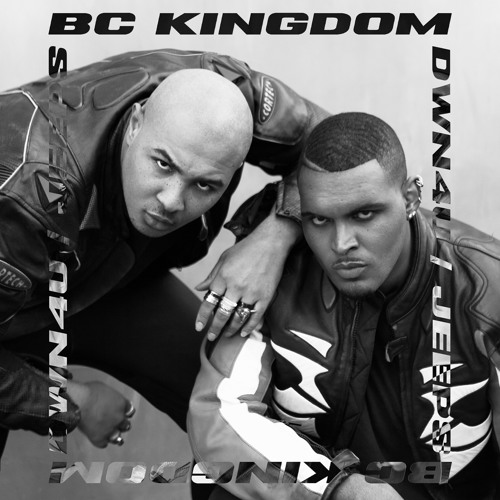"My grandma showed me first strap" Schoolboy Q giddily snarls in "Gangsta", the off-balanced banger opening his major label debut. On first listen it's one of millions of gun references that have popped up in hip-hop since Schoolly D "copped his pistols" in '85. If you're an interloper you'd roll your eyes and call it a day. But if you packed it in you'd be missing something most of those millions haven't been able to do, make perilous gangster talk sound uplifting. For the duration of Oxymoron's gut-wrenching hour, that's precisely what the Black Hippy crew-member does.
Of course not every line in Oxymoron possesses familial innocence. The record is replete with tales of casual sex, drug consumption, and gang violence that would make the bravest of souls noxious. Streetwalkers hit the corner regardless of whether or not they have pneumonia. Baseheads take over entire parks and no matter what room you walk into people will be carrying. The only reason Oxymoron doesn't suffocate is because Q's the kind of guy that'll crack a joke when things couldn't be tenser. He'll refer to wilin' out as "going hamhock" and spotlight a jiggling belly as he dodges junkyard dogs in the hypnotic Raekwon feature "Blind Threats." If the tongue was ever sharper than the sword it’s here.
Quite honestly few tongues in rap can twist in as many directions as Schoolboy Q's. In the aforementioned "Gangsta" he: snarls, imitates his mother, elongates "b****" into something almost unpronounceable, and manages about 400 "YAWK YAWKS." Blissful Chromatics sampler "Man of the Year" turns Q's s***-talking to stutters as he can hardly believe the breathing room his career has afforded. "Make mills from a verb" as he succinctly puts it. While the electro slither of "Studio" arrives as a half-baked pop bid, Q fully commits to the premise. He calms down to match the muted drums and chipmunk cries; allowing himself to get caught up in the moment.
Commitment alone doesn't carry Oxymoron to the finish-line though. The record has one of the best collections of beats since Kendrick Lamar unleashed good kid, m.A.A.d city. It's a musical factory where you'll get caught on a hook if you move around enough. Tyler, the Creator's wailing tornado sirens in "The Purge" draw you in, instead of sending you fleeing from the blood-soaked scene. "Los Awesome", Pharrell's clattering effort is the type to appear on a 90s Cash Money production if the budget was in the 7 digits. And even when a song is bare-bones in construction there's top-dollar craftsmanship involved. "Collard Greens" is the ideal of this standard. Dark "chintzy" keys call to mind Lamar's smash-hit "Swimming Pools (Drank)." MPCs are mashed with cement hands and drums bounce harder than Super Balls. It's an endorphin rush of sounds, one that fully energizes both Q and Lamar. School ticks off his drugs of choice like an overeager surveyor while Lamar becomes a whirling dervish of language. He'll steal your girl in Español before adapting a Houston drawl to "slow it down." On the other side of the tracks, all "Prescription/Oxymoron"'s first half has to offer are stereo-pans, soft whooshes, trilling violins, and sobering handclaps. Still it's enough to pull at heart strings and when School's daughter Joy cuts through the pill-malaise to ask "what's wrong daddy?" dry eyes are an impossibility.
While the entirety of "Prescription" aims to leave a mark, Oxymoron is more impactful when personal details come in sprays. The Alchemist's lateral beat in "Break the Bank" sees Schoolboy Q hopping in a Nissan seconds after tipping his bucket hat to a departed "cuzzo.” Q could've dedicated a whole track to his uncle's worsening drug addiction; instead he tucks it in between Sega Genesis' and N64s in album centerpiece "Hoover Street." In my own life I've idolized uncles I never knew well, so I can't begin to imagine one shriveling up in front of my eyes. "He sweats a lot and is slimming down, I also notice moms be locking doors when he around," Q paints in painstaking detail over a canvas of bass knocks and ominous synth. And that's precisely where Oxymoron and good kid, m.A.A.d city deviate. Kendrick Lamar's game-changer resembled a Hollywood production, albeit one with the vision of Argo or American Hustle. He was a self-professed "good kid" who had to imagine some of the more gnarled elements because he was deliberately being kept away from them. When he asked "if I told you I killed a n**** at 16 would you believe me?" we could comfortably answer no. To its credit, Oxymoron lacks such imagination which is what makes it so uncomfortable. Tales of fallen college football stars and wide-eyed children getting caught up with Crips sound stock, they're not. They're the baggage Q (born Quincy Hanley) carries everywhere. If he ever sheds them and actually gets a "Hollywood ending" to this story, he'll have Oxymoron to thank.
"Man of the Year"
"Break the Bank"

